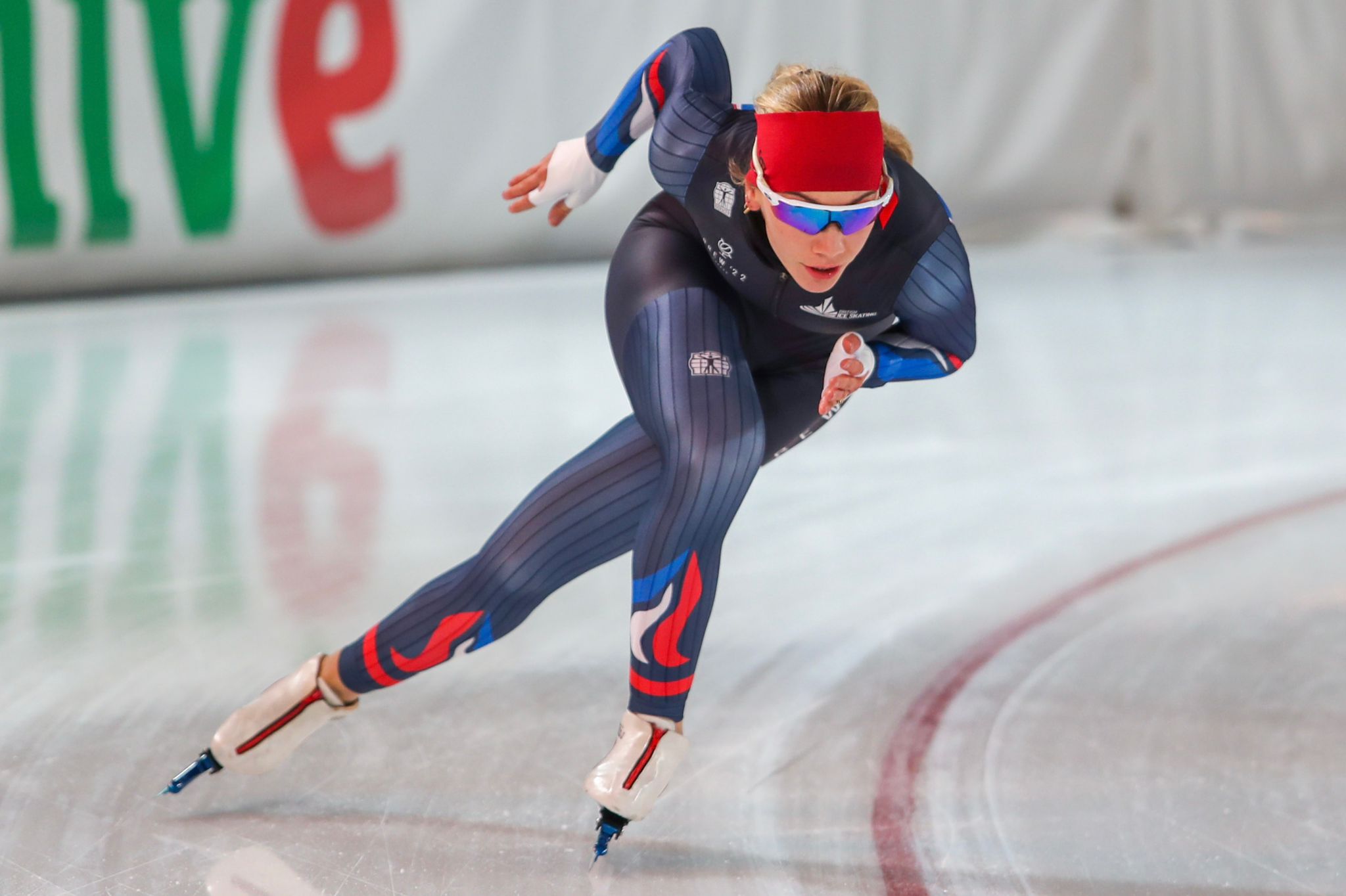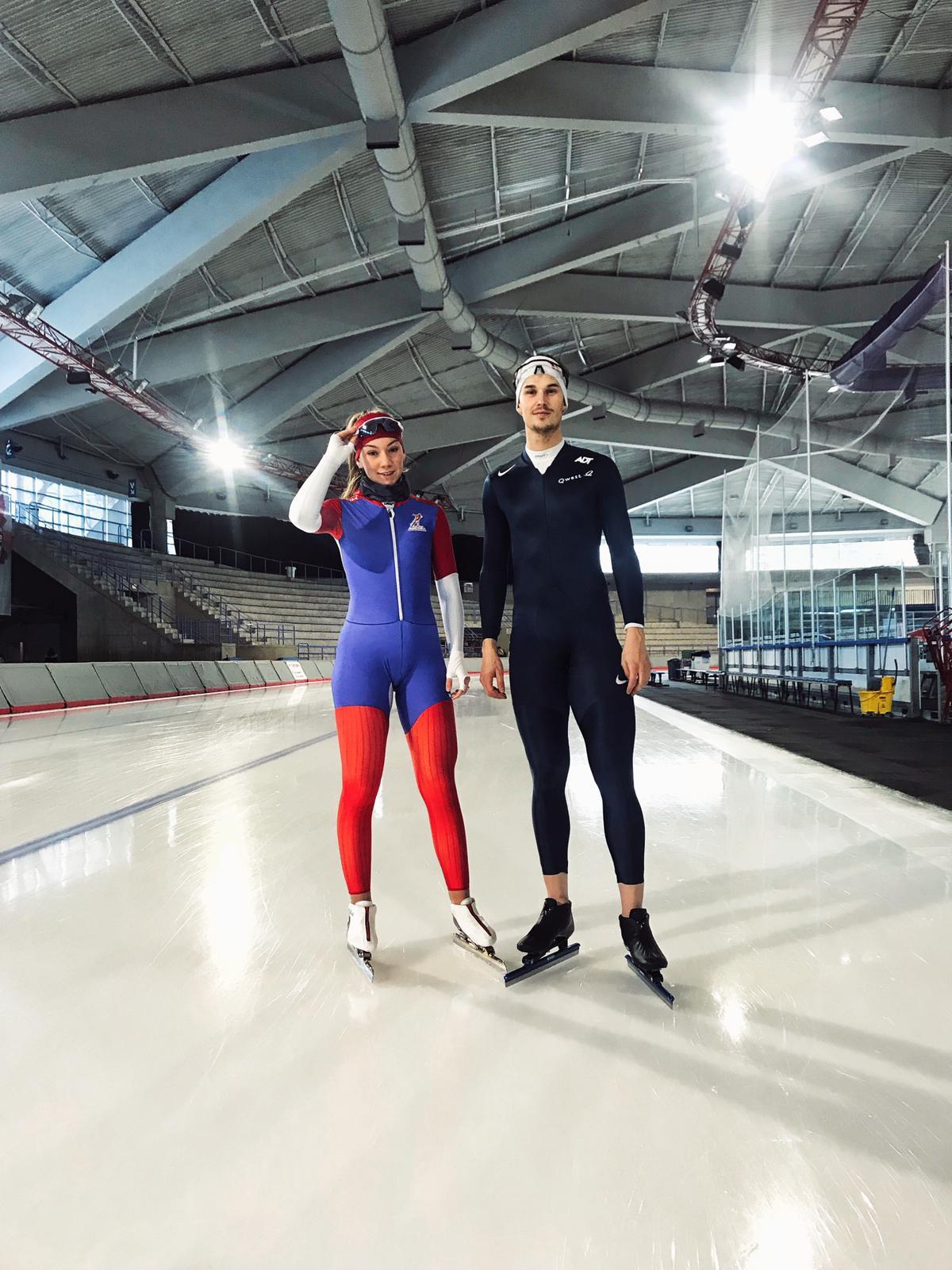Ellia Smeding looking to put long-track speed-skating in limelight at Winter Olympics
The 23-year-old is set to become the first female to represent Great Britain in the event in 42 years

Your support helps us to tell the story
From reproductive rights to climate change to Big Tech, The Independent is on the ground when the story is developing. Whether it's investigating the financials of Elon Musk's pro-Trump PAC or producing our latest documentary, 'The A Word', which shines a light on the American women fighting for reproductive rights, we know how important it is to parse out the facts from the messaging.
At such a critical moment in US history, we need reporters on the ground. Your donation allows us to keep sending journalists to speak to both sides of the story.
The Independent is trusted by Americans across the entire political spectrum. And unlike many other quality news outlets, we choose not to lock Americans out of our reporting and analysis with paywalls. We believe quality journalism should be available to everyone, paid for by those who can afford it.
Your support makes all the difference.Ellia Smeding hopes to inspire a new generation of “control freaks” as she prepares to become the first female long-track speed-skater for 42 years to represent Great Britain at an Olympic Games.
The last British long-tracker to grace the Olympic Oval was Craig McNicoll in 1992, and the women go further back with Kim Ferran and Mandy Horsepool at Lake Placid in 1980, where Robin Cousins reigned supreme and Torvill and Dean were inexperienced also-rans.
The 23-year-old Smeding, who will be joined at the Games by her partner Cornelius Kersten, said it never crossed her mind to pursue the more available route into the unpredictable world of short-track, with which the nation is more readily associated.
Smeding said: “I’m a bit of a control freak, and the difference in short-track is you’re racing in a pack, we all know it’s quite prone to crashes and disqualifications, and you just don’t know what’s going to happen.
“You could be in your best shape possible and have the worst luck. With long-track it’s a time-trial. You could still do something silly and get disqualified, but the chances are really low.
“I like that if you skate well and you have a good execution of the race, that means you will put down a really good result.”
Born in England to a British mother and a Dutch father, Smeding moved to Holland at a young age in order to learn the language, and found a natural progression from an initial love of roller-blading onto the ice in a nation that has won a remarkable 42 speed-skating gold medals.

Alongside Kersten, who was born in Haarlem and also has a British mother, the duo funded their quest to reach Beijing by setting up a single-filter coffee business, Brew 22.
She hopes interest in their performances could ultimately percolate down into improving the effectively non-existent domestic facilities for long-track, which requires a 400-metre ice oval.
Perhaps a touch less ambitiously, Smeding senses the opportunity to swing the focus onto long-track at a Games where, for the first time since its addition to the Winter Olympic programme in 1992, its short-track counterpart offers negligible medal opportunities for Britain.
I’m a bit of a control freak, and the difference in short-track is you’re racing in a pack, we all know it’s quite prone to crashes and disqualifications, and you just don’t know what’s going to happen.
The relative serenity of the long-track oval will certainly offer a stark contrast to the short-track chaos in Pyeongchang where pre-Games favourite Elise Christie fell three times in her elusive quest for a first Olympic medal.
“Elise really made a name for herself and you’ve got to give lots of respect to her for that,” said Smeding, who is scheduled to make her first appearance at the Games in the women’s 1500m on February 7.
“But now we get the chance to show off the sister sport. Long-track is slightly different, slightly less prone to things going wrong, and this is a good opportunity to show off the sport.”
Join our commenting forum
Join thought-provoking conversations, follow other Independent readers and see their replies
Comments